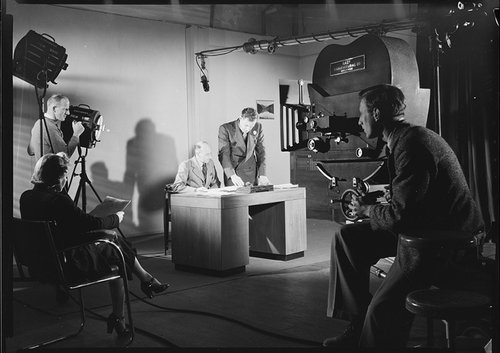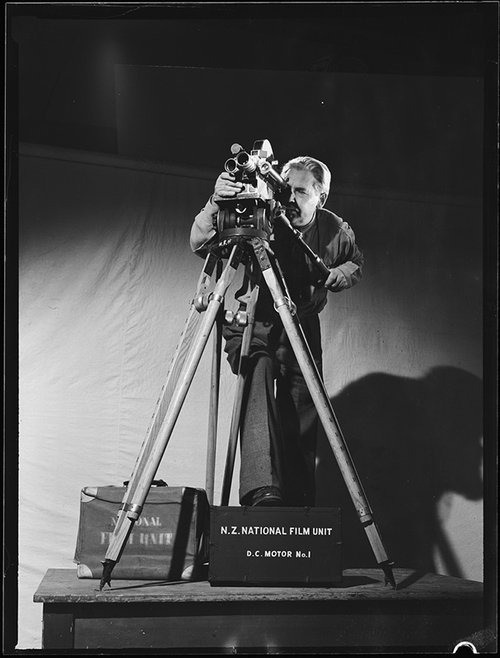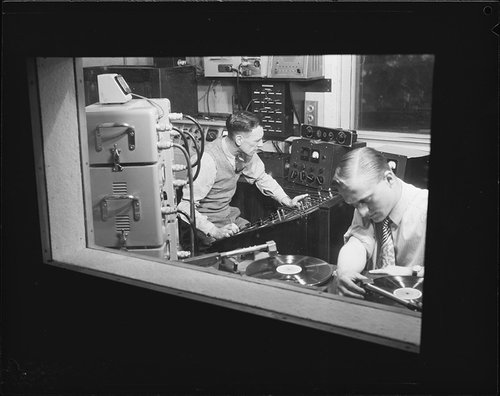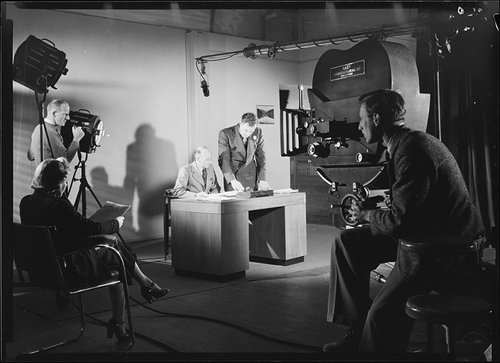
2016 is the anniversary of a landmark moment for the New Zealand film and news industries.
It is 75 years since the National Film Unit (NFU) was set up to screen newsreels for New Zealand cinema audiences.
From wartime news and tourism promos to television dramas and documentaries, the government filming body produced a vivid and rich montage of Kiwi life over five decades.
It bred Oscar nominations, pioneering female directors, and political controversy, and was a key training ground for many directors, actors and cameramen, supporting New Zealand’s emerging film industry.
NZ On Screen, Ngā Taonga Sound & Vision, Archives New Zealand and Manatū Taonga Ministry for Culture and Heritage are coordinating activities during August to mark the anniversary:
- NZ On Screen has launched a Collection of films from the NFU’s 50 years of production, curated by archivist and researcher Clive Sowry. The Collection spans from 1941 to 1986, and includes films from the unit's regular series Weekly Review, Pictorial Parade and New Zealand Mirror, as well as a range of notable one-off productions. In addition to the 30 films the Collection highlights, another 275 NFU films can be viewed at NZ On Screen, many of which are significant titles previously unavailable online.
- In addition, Wellington cinemagoers can relive the experiences of the audiences of the 40s and 50s at the cinema of Ngā Taonga Sound & Vision. In the spirit of the time, Ngā Taonga Sound & Vision will screen a NFU short before each of its main cinema features between 10 August and 3 September. Screenings include: Alex (Megan Simpson, 1993), The End of The Golden Weather (Ian Mune, 1991), Via Satellite (Anthony McCarten, 1998) and Carry Me Back (John Reid, 1982).
- The NFU’s films are looked after today by Archives New Zealand, which restored and preserved the extensive collection, many of which are viewable on its YouTube channel. A user’s guide to sourcing and copying NFU material is also being produced to encourage filmmakers and researchers to reuse NFU films.

Cameraman, NZ National Film Unit, c. 1950.
(Image courtesy of Archives New Zealand)
“The National Film Unit held a unique role in New Zealand’s film and television industries and its productions showcase some truly fascinating aspects of life in New Zealand during the twentieth century that would be difficult to portray in any other medium,” says David Butts, Manager of Heritage Operations at Manatū Taonga Ministry for Culture and Heritage.
“It’s a real credit to our partner agencies that, on the 75th anniversary of the establishment of the Unit, hundreds of films showcasing its immense and rich output are now freely available for people to view, often for the first time in decades.”
The NFU was set up by the government in 1941 to publicise the war effort, but it was the human faces of the newsreels that really appealed to people. They packed local cinemas in the hopes of seeing a loved one on film.
In the 1940s and 50s, the NFU was a major source of news and information for New Zealanders, who were some of the most frequent cinemagoers in the world. The first half of a cinema programme would typically include "God Save the King/Queen," followed by a cartoon and a newsreel or short documentary.

NFU staff at work in recording booth.
(Image courtesy of Archives New Zealand)
From Kiwi athletes, Royal visits and tourist attractions to the everyday lives and concerns of workers and families in rural and urban New Zealand, the NFU gave Kiwis the chance to see and hear themselves and each other on screen.
When television arrived in the 60s to take up that role, the unit started to shoot more ambitious and innovative documentaries and films. It was sold to TVNZ in 1990, and in 1998 the film facilities in Miramar were sold to a company associated with Peter Jackson, later to become Park Road Post Production.
The National Film Unit’s 75th anniversary is one of three landmark moments in New Zealand film being celebrated in 2016.
This year will also see the 120th anniversary of New Zealand’s first public film screening, and the 100th anniversary of the introduction of film censorship in New Zealand. Details about events to mark these anniversaries will be released closer to the time.

Recording session, c. 1950.
(Image courtesy of Archives New Zealand)
To View National Film Unit Footage: